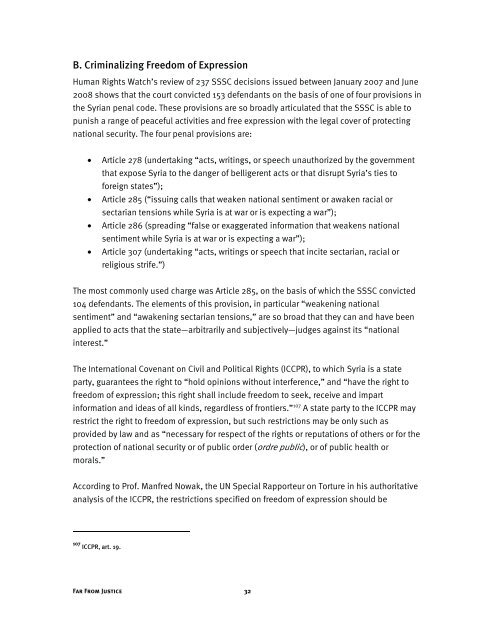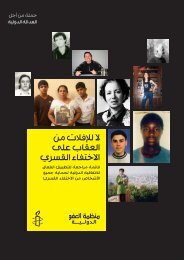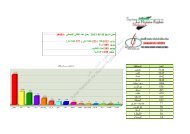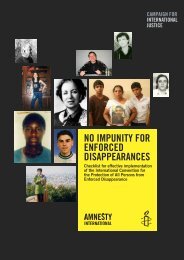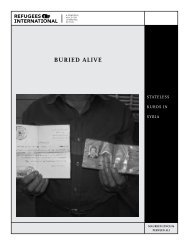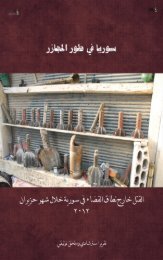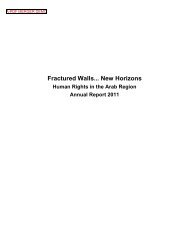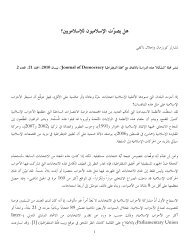Far From Justice - Human Rights Watch
Far From Justice - Human Rights Watch
Far From Justice - Human Rights Watch
- No tags were found...
You also want an ePaper? Increase the reach of your titles
YUMPU automatically turns print PDFs into web optimized ePapers that Google loves.
B. Criminalizing Freedom of Expression<strong>Human</strong> <strong>Rights</strong> <strong>Watch</strong>’s review of 237 SSSC decisions issued between January 2007 and June2008 shows that the court convicted 153 defendants on the basis of one of four provisions inthe Syrian penal code. These provisions are so broadly articulated that the SSSC is able topunish a range of peaceful activities and free expression with the legal cover of protectingnational security. The four penal provisions are:• Article 278 (undertaking “acts, writings, or speech unauthorized by the governmentthat expose Syria to the danger of belligerent acts or that disrupt Syria’s ties toforeign states”);• Article 285 (“issuing calls that weaken national sentiment or awaken racial orsectarian tensions while Syria is at war or is expecting a war”);• Article 286 (spreading “false or exaggerated information that weakens nationalsentiment while Syria is at war or is expecting a war”);• Article 307 (undertaking “acts, writings or speech that incite sectarian, racial orreligious strife.”)The most commonly used charge was Article 285, on the basis of which the SSSC convicted104 defendants. The elements of this provision, in particular “weakening nationalsentiment” and “awakening sectarian tensions,” are so broad that they can and have beenapplied to acts that the state—arbitrarily and subjectively—judges against its “nationalinterest.”The International Covenant on Civil and Political <strong>Rights</strong> (ICCPR), to which Syria is a stateparty, guarantees the right to “hold opinions without interference,” and “have the right tofreedom of expression; this right shall include freedom to seek, receive and impartinformation and ideas of all kinds, regardless of frontiers.” 107 A state party to the ICCPR mayrestrict the right to freedom of expression, but such restrictions may be only such asprovided by law and as “necessary for respect of the rights or reputations of others or for theprotection of national security or of public order (ordre public), or of public health ormorals.”According to Prof. Manfred Nowak, the UN Special Rapporteur on Torture in his authoritativeanalysis of the ICCPR, the restrictions specified on freedom of expression should be107 ICCPR, art. 19.<strong>Far</strong> <strong>From</strong> <strong>Justice</strong> 32


